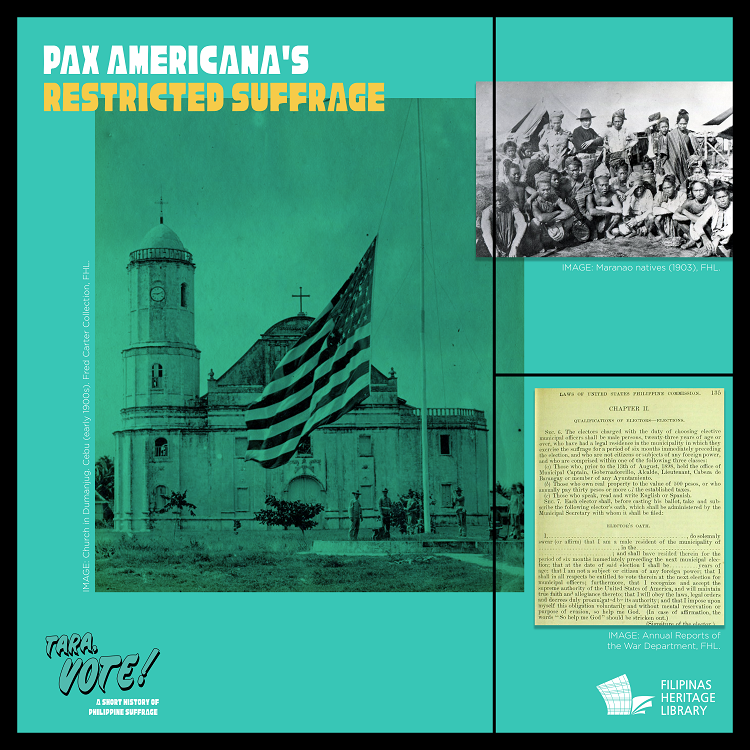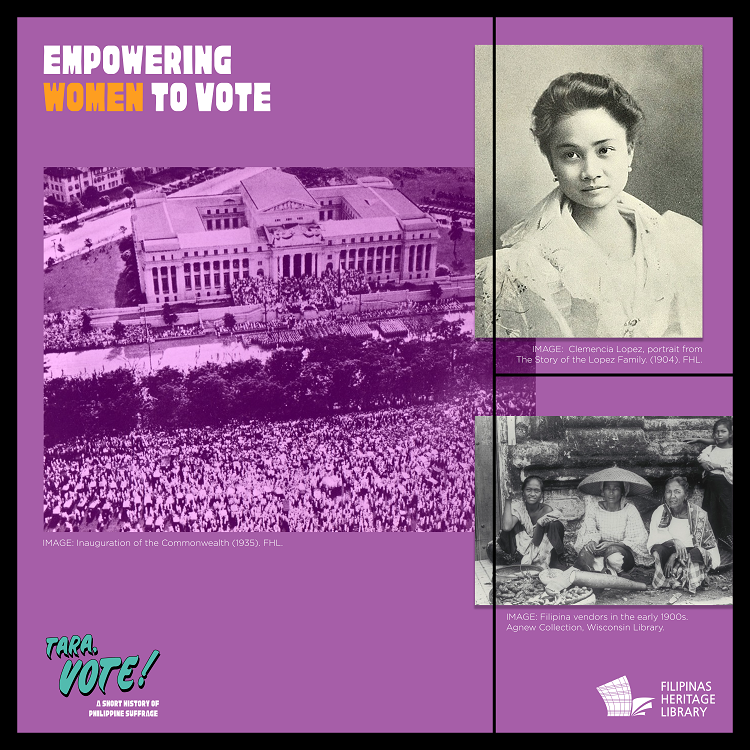On April 23, 1946, a year after Liberation, we held our first elections as an independent country, making Manuel Roxas president. The campaign Roxas ran was not especially strong on safeguarding economic autonomy. For instance, the 1946 Parity Agreement, which Roxas did not oppose, gave Americans the same rights as Filipinos to the country’s natural resources.
Source: Abraham Chapman, “A Note on the Elections” (1946), 193; 196-197; M.N. Querol, “Osmeña or Roxas?” The Philippine American (April 1946): 7-10; Diokno, Up from the Ashes, Kasaysayan, vol. 8 (1998), pp. 7-9. (Access at FHL).
Image: Filipino family (1944). World War II Album 2856, Wisconsin Library.

Other issues related to independence seemed to cloud electoral judgment. By voting certain leaders to power, Filipinos could not stop the flood of American products free of duty and quota, into the Philippines. No plebiscite was held to decide on letting the United States set up military bases in the country.
Source: Diokno, Up from the Ashes, Kasaysayan, vol. 8 (1998), 15-17; 45-50; 31-35 (Access at FHL)
Image: Joint session of the Philippines Commonwealth Congress (1945). Ricardo T. Jose Collection.

Postwar male culture continued to doubt the validity of female empowerment. Attacking how “dulcet election promises” can fool voters, one writer opines: “We do not propose to comment on the female portion of the electorate, content with the observation that since their enfranchisement, there has been a terrible world war.”
Source: Bienvenido Paguio, “Democracy’s Finest Hour” The Philippine American (April 1946),
p. 58. Read “The Philippine-American” (February 1946) online
Image: Ice cream cart at Pateros (1945). Ricardo T. Jose Collection.

Historically, the Filipino electorate is quite young. That may explain its exuberance. As a right won after long struggle, voting today can be seen as an act of love, a love tested by past foreign constraint and tested still by hard choices: the love of country.
Image: Philippine statue of liberty at the independence day parade (July 4, 1946), Ricardo T. Jose Collection





































